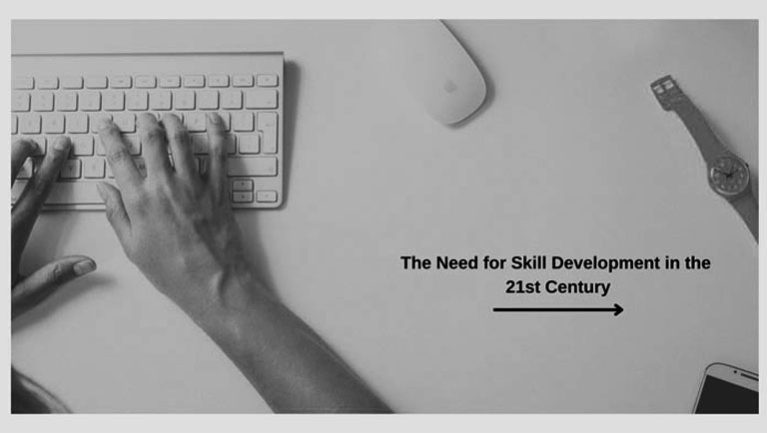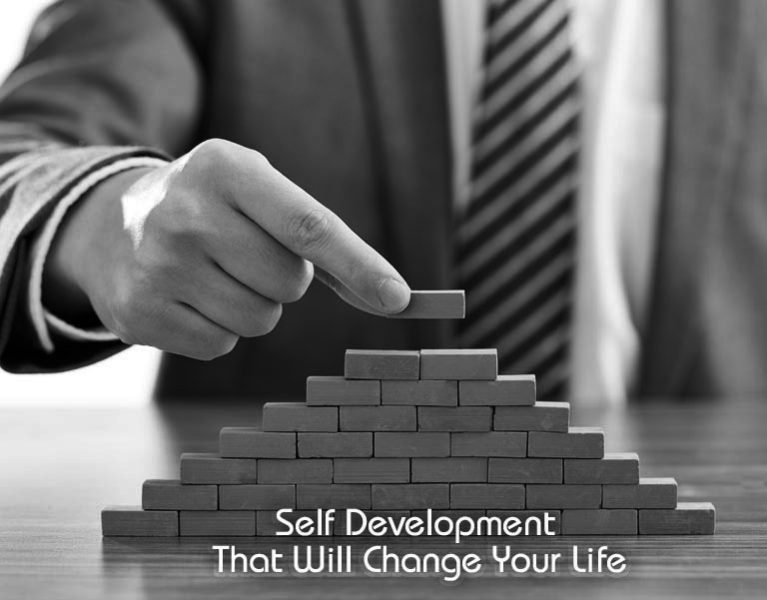
Professional Career Development
Our education system expects the youth to make decisions about their career very early in life.

Yuval Noah Harari in his book Home Deus talks about the rise of the useless class in the 21st century. The emergence of the Useless class ranks as the direst threat to the 21st century. Harari chose this strong term, “Useless” only from the economic and political viewpoint and not from moral. As artificial intelligence gets smarter, more and more humans will be pushed out of the job market. These people will be rendered jobless not because there will be no jobs but because they do not possess the skills that are needed to excel at the jobs.
Skill development is no more a matter of choice, it is the core of survival. When nations develop, their people must develop too. As economies advance in terms of digitalization, industrialization, and developing infrastructural playgrounds, skilling, reskilling, and upskilling become imperative.
Skill shortages are a major concern for businesses and industries worldwide. According to Korn Ferry forecast, more than 85 million jobs may go unfilled by 2030 due to a lack of qualified candidates.
Skilling in that scenario is no more a matter of choice but it is the core for survival for the people who want to have a good career and a sustainable livelihood.
Businesses today are focused on taking on employees who have the potential to be skilled, reskilled, or upskilled.
Reskilling – It is the process of acquiring new skills to do a different job. It implies developing adjacent skills that are close to new skills. It provides a lateral learning experience. With the evolution of technology and the digital landscape, some jobs will become redundant and some will become critical. According to the World Economic Forum, the greatest adoption will be seen in the following fields by 2025:
Upskilling – It is the process of optimizing performance being in the same role. Unlike reskilling, this involves training people while keeping them in the same roles, rather than changing their jobs entirely.
Both are effective strategies to address the perennial skill shortage.
It is the ability and capacity gained through deliberate, structured, and sustained effort to carry out activities proficiently involving ideas (cognitive skills), things (technical skills), and/or people in an adaptable and agile environment.
Fundamentally skill Self development is enhancing one’s ability to face the challenges of tomorrow by preparing today.
It essentially is a systematic approach to move from your current state to the desired state by identifying the gaps and developing those gaps through learning.
It is critical to accept that knowledge does not guarantee skill; only implementing or applying knowledge does.
Theoretical knowledge can provide an imaginative framework, but only practical knowledge can provide real-world exposure and enables building a life of choice.
There are many advantages of skill development:
1. Enhances self-awareness – Skill development begins with an assessment of the gap between the current situation and the desired future situation. This helps in identifying one’s strengths and areas of improvement.
Often With our hectic schedules, it may be difficult to take the time to reflect on who we are, our strengths and weaknesses, our motivations and personalities, our habits and values.
Furthermore, many of us aren’t inclined to devote much time to self-reflection and skill development enables an increased self-awareness.
2. Leads to career advancement – Spending time honing your skills can help achieve personal career goals like getting a promotion or becoming an expert on a particular subject.
Skill sets can be used to advance in a current career or broadened to qualify for a job in a different field or industry.
3. Gives a leading edge – It is important to constantly develop and find strategies to keep up with the changes if they are to thrive. Skill Development is critical, especially when it comes to keeping up with industry changes, rules, and regulations.
4. Increases productivity and boosts morale – Skill development is critical for increasing confidence and removing self-doubt. When motivation levels are high, efficiency and effectiveness increase, resulting in increased job satisfaction.
During his Independence Day speech in 2014, Hon’ble Prime Minister of India Shri Narendra Modi stated that “skill development” and “Skilling India” must be our mission if we are to promote our country’s development.
Hundreds of millions of Indian youth should learn skills that will enable them to contribute to the modernization of India.
He expressed his desire to create a pool of young people who are capable of creating jobs as well as assisting those who are unable to do so due to a lack of opportunities.
Skilling India is important for two main reasons:
1. The growth of the service sector in India – The natural economic movement of a country goes from an agrarian economy to an industrial economy to a service economy but India has leapfrogged from an agrarian economy to a service economy. This remarkable feature of India’s recent growth is diversification into services, with the services sector dominating GDP increasing the importance of skill development in job creation.
2. India is a young nation – With more than 62 percent of the population in the working-age group (15-59 years) and more than 54 percent of the total population under the age of 25, India is now one of the world’s youngest countries. The labour force in the developed world is expected to decline by 4% over the next 20 years, while it will increase by 32% in India.
However, only 2% of India’s total workforce have the career building skills. These skills are marked by the 5C’s, Creativity, Collaboration, Communication, Connection, and Critical thinking.
With the rapidly emerging workplace where AI Artificial intelligence is threatening once-coveted job titles ranging from accounting to law the need for workplace success skills becomes crucial. They no more are good to have or soft skills but are the drivers of growth.
Fundamentally, skilling, reskilling, and upskilling is the need of the hour to become future-ready and the choices that we make today will determine the quality of our beings tomorrow!
James Esdras Faust, an American religious leader, lawyer, and politician once said, “Tomorrow’s blessings and opportunities depend on the choices we make today.” We hold within our choices the power to change our lives, change the lives of those around us, and the power to choose our destiny.
The Changes is an Organization Development Consulting firm that helps corporates, campuses and individuals to achieve business, functional and personal goals.
We assist professionals and students by designing and delivering learning programs to equip them with the skills that are vital for success in the New World.
Sonia is an internationally certified L&D specialist & soft skills coach. She has been leading behavioural transformations through designing and delivering learning programs.

Our education system expects the youth to make decisions about their career very early in life.

Our mind is our biggest asset, but also our biggest obstacle.

Skill development is no more a matter of choice, it is the core of survival.
3 Comments
Excellent article! This writer has quite wider perspective of future generation and their career skill set. Rightly pointed out pros and cons to understand readers
Thank You Priyanka for sharing your thoughts. Happy to hear that the article was easy to understand.
[…] Keep Reading, Keep Improving!!Professional Career DevelopmentSkill development […]